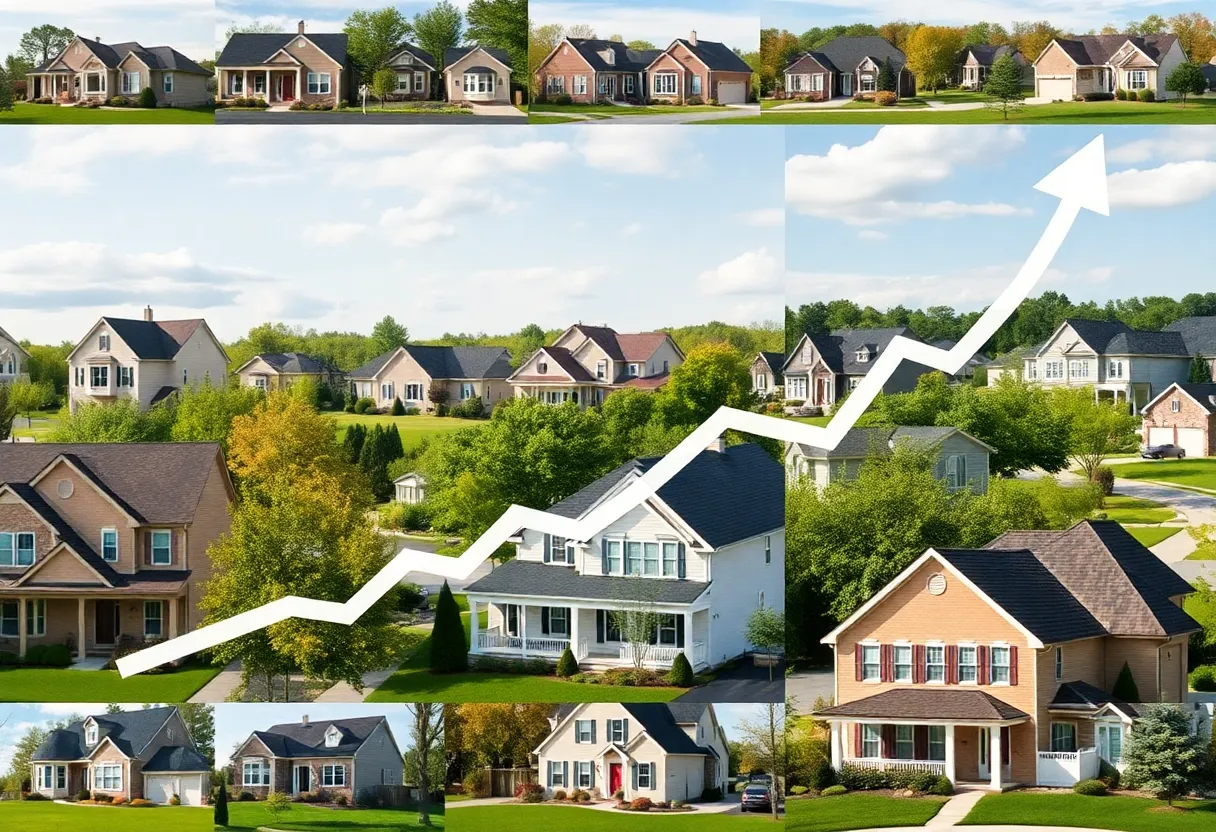News Summary
With 20.4% of Pennsylvania homeowners now exceeding federal capital gains tax exemption limits due to soaring home equity, many face unexpected tax liabilities. As home prices have surged over 260% since 1997, the impact of these taxes could force older homeowners to delay selling, exacerbating housing shortages. Advocates for tax reform are pushing for the More Homes on the Market Act to modernize outdated tax regulations. Homeowners are urged to reassess their equity status and consult advisors to avoid future financial pitfalls.
Pennsylvania Homeowners Face Hidden Capital Gains Tax as Home Equity Surges
Recent trends reveal that 20.4% of Pennsylvania homeowners now have home equity that exceeds the federal exclusion limits for capital gains taxes. This is particularly concerning as 3.4% of these homeowners surpass the $500,000 exemption available to married couples filing jointly, which has remained unchanged since 1997. As home prices in the U.S. have soared over 260% since these exemptions were first established, many homeowners in Pennsylvania are increasingly at risk of facing unexpected tax liabilities.
The capital gains tax in Pennsylvania is set at a flat rate of 3.07%, a rate that is notably lower than that of many neighboring states. However, when coupled with the federal capital gains tax, which can be significantly higher depending on income levels, the overall tax burden can become substantial. The situation highlights a growing concern for homeowners in a state where home appreciation trends are bringing many long-term property owners closer to outdated tax limits.
Rising Home Values
In Pennsylvania, long-term price appreciation, especially in areas like Philadelphia, Pittsburgh, and Lehigh Valley, has led to dramatic increases in home values. Homes that were bought for $150,000 or $200,000 decades ago may now be valued between $400,000 and $600,000. As home equity gains surpass federal exemptions, liability for capital gains taxes comes into play, a situation that poses a serious financial challenge for many homeowners.
Impact on Homeowners
The phenomenon of the “stay-put penalty” has emerged, as older homeowners are choosing to delay selling their properties to avoid incurring taxes on these appreciated values. This decision not only impacts the homeowners financially but also exacerbates housing shortages in various Pennsylvania communities, as fewer homes are available on the market.
While the percentage of affected homeowners stands at 20.4%, which is below the national average, the 3.4% who exceed the $500,000 cap highlights a growing vulnerability among seasoned homeowners. Moreover, even middle-income families in Pennsylvania are increasingly facing these capital gains tax challenges, making it evident that this issue is pervasive and not limited to luxury real estate markets.
Future Projections
With ongoing price gains, projections indicate that nearly 70% of U.S. homeowners may surpass the $250,000 federal exemption cap by the year 2035. Such a shift could mean significant tax repercussions for countless homeowners who consider their residences as a stable means of wealth building.
Industry Response
In light of these growing concerns, industry leaders are advocating for the More Homes on the Market Act, which aims to double the capital gains tax exemption and link it to inflation. This initiative seeks to modernize tax regulations that have not kept pace with the rising housing market.
Actionable Advice for Homeowners
Homeowners are advised to reassess their home equity status and to consult with tax advisors to comprehend the potential tax implications of their home values. As homeownership, even at average levels, starts to yield unexpected and substantial tax bills due to rising property values in Pennsylvania, awareness and proactive financial planning become crucial for future compliance and fiscal health.
In conclusion, while homeownership remains a traditional path to financial security, it is essential for Pennsylvania homeowners to understand the evolving landscape of capital gains taxes as an increasing proportion of them find themselves at risk of exceeding federal tax exemption limits.
Deeper Dive: News & Info About This Topic
- Realtor: Pennsylvania Home Equity Tax
- Wikipedia: Capital Gains Tax
- The Mortgage Reports: First-Time Home Buyer Qualifications
- Google Search: Home Equity Tax Pennsylvania
- CNBC: Best Home Equity Loan Lenders
- Google Scholar: Home Equity Tax
- Bankrate: Buying a House in Pennsylvania
- Encyclopedia Britannica: Property Tax
- Realtor: States That Exempt Seniors from Property Taxes
- Google News: Pennsylvania Home Equity

Author: STAFF HERE PHILADELPHIA WRITER
The PHILADELPHIA STAFF WRITER represents the experienced team at HEREPhiladelphia.com, your go-to source for actionable local news and information in Philadelphia, Philadelphia County, and beyond. Specializing in "news you can use," we cover essential topics like product reviews for personal and business needs, local business directories, politics, real estate trends, neighborhood insights, and state news affecting the area—with deep expertise drawn from years of dedicated reporting and strong community input, including local press releases and business updates. We deliver top reporting on high-value events such as Mummers Parade, Philadelphia Flower Show, and Thanksgiving Day Parade. Our coverage extends to key organizations like the Greater Philadelphia Chamber of Commerce and United Way of Greater Philadelphia, plus leading businesses in telecommunications, food services, and healthcare that power the local economy such as Comcast, Aramark, and Children's Hospital of Philadelphia. As part of the broader HERE network, we provide comprehensive, credible insights into Pennsylvania's dynamic landscape.





